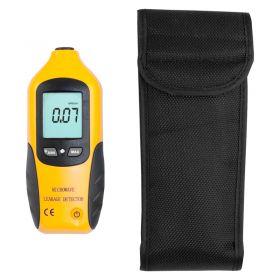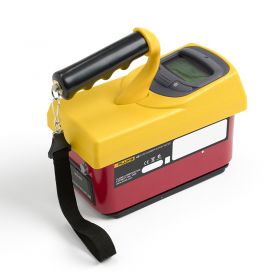Radiation & Microwave Leakage Detectors
Test for microwave leakage and microwave radiation with our range of microwave leakage detectors. To perform a microwave leakage test simply pass the device over the entire microwave and the tester will let you know if excessive radiation is detected.
Find out more about Radiation & Microwave Leakage Detectors below.

- Beeps and flashes if microwaves are detected
- Highly accurate readings
- Battery lasts for over a year

- Visual and audible warning when microwave leakage reaches a dangerous level
- Displays low leakage levels
- Backlit, LCD, digital display with Max Hold function

- Special self-testing feature
- Tests to BS5175 safety standards
- Digital thermometer and beaker included


- Detect skin-dose (beta particle), deep-dose (gamma), and x-ray radioactivity
- Measure dose and dose rate
- Auto-ranging capabilities provide prompt, precise readings
About Radiation & Microwave Leakage Detectors
Radiation is everywhere, from the light of the sun to the rocks of the earth; thankfully most radiation is harmless to humans as it is dispersed safely upon contact. There are, however, a range of common household items that could - if not properly maintained - cause substantial deep tissue burns and hyperthermia.
The most common source of radiation a person will encounter is a microwave. There has also been substantial research performed on whether or not mobile phones generate enough of it to harm humans; the jury is still out on this topic but caution should still be taken. Every mobile phone however is tested to the FCC standards of safety ensuring they do not give off more than the accepted amount.
Several unqualified techniques can be used to roughly test if a microwave may have a problem. These include placing a laptop inside the oven (switched off!) and seeing if the Wi-Fi connection is functioning, or waving a fluorescent tube above the oven while it is active to see if the light glows. These techniques, although useful, can be affected by external factors making some of the tests unreliable.
When working in an environment where people or products may be exposed to radiation further steps must be taken to ensure no contamination is taking place. This is typically carried out by trained professionals using the highly sensitive testing equipment to ensure the safety of their workers and clients.
For truly accurate readings an engineer should use a calibrated tester capable of detecting the required range of radiation. These instruments range from the precision microwave leakage detectors that are purpose-built for incredibly accurate readings for the microwave spectrum, to the more general and typically more expensive Geiger counters that can be used for detecting the full range of radioactive energy.


